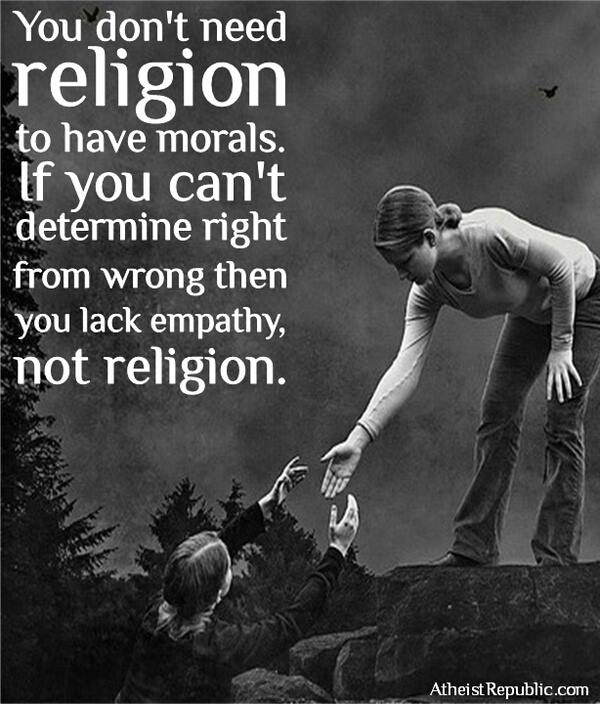The image was apparently created by an atheist. But contrary to what some claim, there is no particular reason why its viewpoint ought to be considered inherently atheistic. If we look at the Biblical literature, rarely if ever does anyone in it claim that it requires special divine revelation for human beings to tell right from wrong. Rather, the prophets, the wisdom teachers, the apostles, and many others appeal to what they believe their audience can safely be assumed to accept.
Trying to make morality about something other than empathy undermines the very foundation of morality. That isn’t, of course, what conservative Christians say. In fact, many of them claim that they are making morality objective when they ground it in God. But their view turns out to actually undermine objective morality when examined closely. And that shouldn’t surprise anyone. How else can they hope to justify saying that God is moral to command genocide or child sacrifice on the one hand, and ignoring Jesus’ teaching about loving your enemies on the other?
Time and again, it has seemed to me that conservatives who hold these views play a bait-and-switch game even with the terminology they use. Empathy provides an objective meaning for morality – acting on the basis of empathy is something that can be understood regardless of person, even if different people may still act in different ways and draw different conclusions on that basis (since people do the same on the basis of the Bible, fundamentalists ought to accept that differing applications clearly do not invalidate the objectivity of a particular approach to morality). Rooting morality in a divine subject, on the other hand, does not necessarily provide for objective morality – especially if that morality is not accessible apart from knowledge of that divine subject.
What do readers think? Could you imagine Jesus saying much the same thing as the graphic at the top of this post does?













